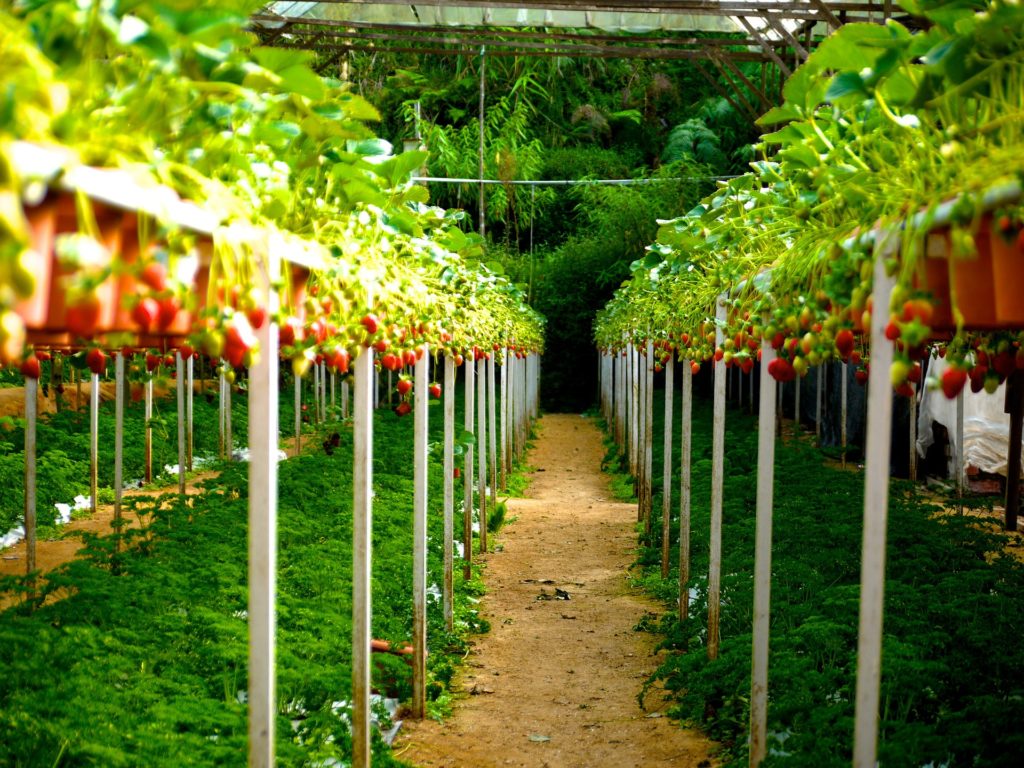
“Food is about the relationships that join us to the earth, fellow creatures, loved ones and guests, and ultimately God. How we eat testifies to whether we value the creature we live with and depend upon. To eat is to savor and struggle with the mystery of our creatureliness.”
– Norman Wirzba, Food & Faith: A Theology of Eating
I’ve been reading Food & Faith: A Theology of Eating by Norman Wirzba and while I feel compelled to share my newfound insights into the “holy and humbling mystery” of food, the ironic reality is that I’ve recently been struck with food poisoning.[1] At the moment, I’m feeling adverse to anything ingestible and during my short hiatus from food, I have reluctantly been absent from the Abundant Table Farm. Additionally, I have been absent from shared meals and by extension one of the most ancient and essential forms of community. Wirzba describes the connective power of food in that, “Eating joins people to each other, to other creatures and the world, and to God through forms of ‘natural communion’ too complex to fathom.”[2] Food, then, is a delightful sacrament which makes tangible participation in the invisible network of aliveness which connects all organisms to each other and to God who is the “Life of all life.”[3]
This portrait strikes me as beautiful and simple in its undeniable truth. Of course, each of us “knows” in some abstract sense that all living things are linked together by some shared life-force we may consider to be “sacred” (or we may simply refer to as carbon). We “know” in the vaguest of terms that our human lives depend upon food which further depends upon flora, fauna, and some mysterious conditions that constitute healthy ecosystems. However, when the experience of food is reduced to transactional procurement, a preparation process defined by convenience, and lone consumption, the sacramental dimension of food feels stretched thin to the point of disappearance. Rather than a reminder that “we participate in a grace-saturated world, a blessed creation worthy of attention, care, celebration” I would suggest the average dining experience is a process characterized by quickness, convenience, and an ability to adapt to the individual wants and needs of any given consumer.[4] Food is conceptualized as fuel, a commodity, not a sacrament, and not even a fundamental human right.
In this way, my unfortunate and laughable food-poisoned state is a fitting analogy for the present topography of our food system. Consider Wirzba’s succinct declaration, “Despite what food markets say, there really is no such thing as ‘cheap’ or ‘convenient’ food.”[5] Instead, there are processes which transform the earth’s gifts of food into a carefully constructed product which allows for consumers to divorce themselves from the true cost of the life and death they absorb without thought or reverence. If we as consumers are not paying the true cost, I wonder where the price is being exacted. Is the weight of our irreverent eating taking a toll upon our lands? Our soil and water quality? Is the true cost being carried by the exploited laborers who harvest the nation’s food supply only to face the highest rates of food insecurities themselves? The fact is, “To eat is to be implicated in a vast, complex, interweaving set of life and death dramas in which we are only one character among many.”[6]
Here is an invitation to learn a bit more about those other characters. Recall your narratives about food—what are your cherished food rituals? When has food been a source of personal challenge? Labor over a meal with loved ones or with strangers—receive hospitality and give it away. Share the dish duties. Deviate from your old recipes. Improvise and eat playfully, creatively. Introduce yourself to a new vegetable. Acknowledge all the sanctity a pomegranate possesses. Read poetry before dining—better yet, sing poetry over your plate. Buy local and know your farmer. Strive to eat justly, without cruelty. Confront your own creatureliness. Give thanks and live!
[1] Norman Wirzba, Food and Faith: A Theology of Eating (Cambridge: Cambridge University Press, 2011), 2.
[2] Ibid.
[3] Micheal Fishbane, Sacred Attunement: A Jewish Theology (Chicago: University of Chicago Press, 2008), 119.
[4] Wirzba, Food and Faith, 2.
[5] Ibid.
[6] Ibid., 4.
